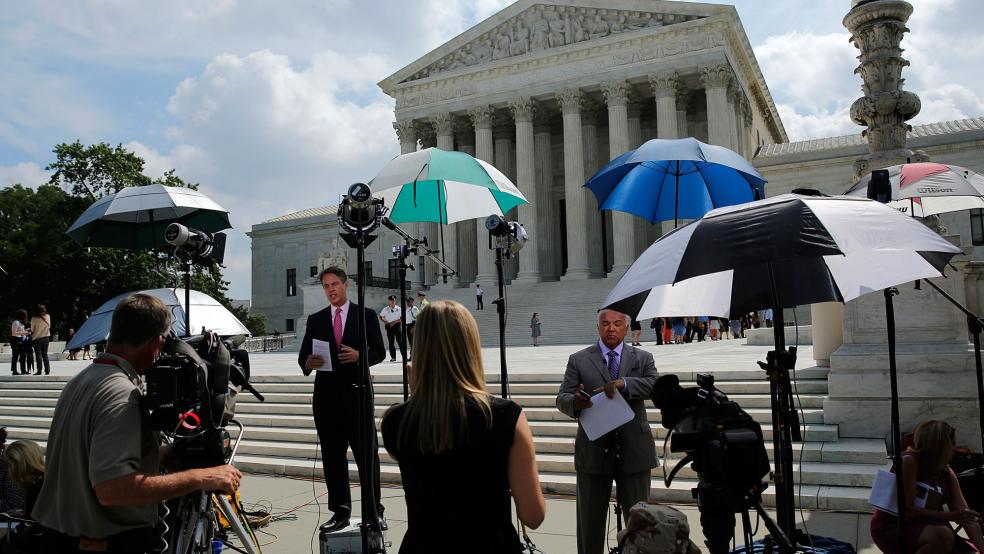While it’s not receiving the same level of attention as the Hobby Lobby ruling, the Supreme Court’s opinion this morning in the labor law case Harris v. Quinn will have a real-life impact on many more people – the millions of home health care workers in the United States and the people who employ them.
It also throws a roadblock on a path that major unions had hoped would lead to membership growth and increased influence.
Related: The Supreme Court Just Confirmed What We Already Knew – Our Government Is Broken
In its 5-4 decision written by Justice Samuel Alito, the Court overturned a lower court ruling that had found it was permissible for home health care workers who are paid by Medicaid to be required to pay dues to the Service Employees International Union (SEIU). The court decided the case on First Amendment grounds, arguing that it is unconstitutional to force workers to become de facto members of a group whose ideology or practices they do not support. However, the court limited the application of its decision to “partial public” employees.
The case is complicated by the fact that state law in Illinois, where the case arose, originally classified home health care workers paid from Medicaid funds as employees not of the state but of the individual customer, who had the authority to hire and fire a caregiver.
In response to an effort by SEIU, Illinois lawmakers altered the law to classify the caregivers as state employees solely with respect to union representation (i.e., not with respect to, say, suing the state for the actions of a home health care worker). As an indirect result, an “agency fee” was taken from caregivers’ pay through their Medicaid deduction and transferred to SEIU, resulting in payments to the union of about $3.6 million per year.
The result, by itself, does nothing to affect union workers in most other employment arrangements. They remain covered under an earlier ruling in Abood v. Detroit Board of Education, which the five-justice majority criticized but allowed to stand. “Abood involved full-fledged public employees, but in this case, the status of personal assistants is much different,” Alito wrote for the majority.
Related: Your Cellphone Has the Right to Remain Private
The refusal to overturn Abood was about the best news unions could take from the ruling, said University of North Carolina Law School professor Jeffrey M. Hirsch.
“The unions really dodged a big bullet with this one,” he said, calling the ruling “shockingly narrow” in its application to only partial public employees. He said it was strange that “the decision goes on and on about how much the current system stinks” – but did so little to change it.
Hirsch speculated that the decision might have been a compromise between the four most conservative judges on the panel and Anthony Kennedy, whose vote is often required to break what would otherwise be a 4-4 tie between the Court’s liberal and conservative wings.
SEIU was predictably disappointed in today’s decision. “No court case is going to stand in the way of home care workers coming together to have a strong voice for good jobs and quality home care,” SEIU President Mary Kay Henry said in a press release. “At a time when wages remain stagnant and income inequality is out of control, joining together in a union is the only proven way home care workers have of improving their lives and the lives of the people they care for.”
Related: Obama Mocks Congress One Day after SCOTUS Rebuke
The ruling, said the union, “places at risk a system of consumer-directed home care in Illinois that has proven successful in raising wages, providing affordable health care benefits, and increasing training.”
The ruling also threatens the growth of labor unions, which have greatly declined in membership over the past generation. Organizations like SEIU saw the unionization of home health care workers as a sector full of potential new members.
Writing for the libertarian Cato Institute, attorney Andrew M. Grossman said that while the ruling “does not remake private-sector labor law… [it] does put an end to one of the labor movement’s greatest hopes for expansion.”
Top Reads from The Fiscal Times:





